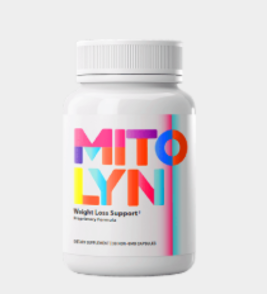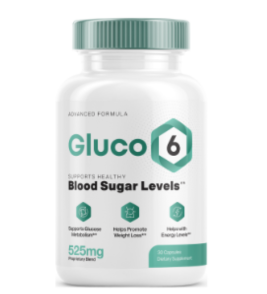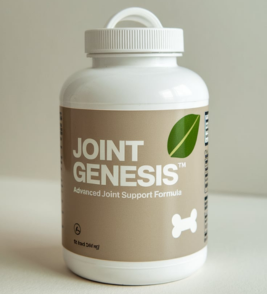TL;DR
After 35, many people notice changes in energy, weight balance, and overall vitality. While metabolism does not crash suddenly, factors like reduced muscle mass, hormonal shifts, and lifestyle changes can make it feel slower. You can support a healthy metabolism by focusing on resistance training, nutrient-rich foods, restorative sleep, and herbal ingredients like green tea, turmeric, ginger, and cumin. These simple, natural approaches can help you feel energetic and balanced at any stage of life.
Introduction
Turning 35 is not a sign that your body will suddenly slow down, but it is a time when subtle shifts in health start to appear. Men and women alike may experience changes in weight management, recovery time, and daily energy levels. These are not just signs of “getting older”; they are signals from your body that it needs extra care.
In this article, we will explore why these changes happen and how herbs, foods, and lifestyle habits can help maintain a strong, active metabolism well into midlife and beyond.
Why Midlife Metabolism Feels Different
Metabolism is the process by which your body converts food into energy. In your mid-thirties, several factors can make it feel like your metabolism is slowing down:
-
Muscle Mass Reduction: Muscle burns more calories than fat, and a small loss can affect daily energy burn.
-
Hormonal Changes: Shifts in estrogen, testosterone, and thyroid hormones can influence how your body stores and uses energy.
-
Lifestyle Patterns: Sedentary routines, irregular sleep, and stress can weaken metabolic efficiency.
-
Chronic Low-Grade Inflammation: This “inflammaging” can slow recovery and impact energy production.
While these factors are real, they can be managed with intentional choices.
Lifestyle Fixes for a Healthier Metabolism
1. Resistance Training
Strength training helps preserve and build muscle mass, which in turn helps maintain a higher resting metabolic rate. Aim for at least two to three sessions per week using weights, resistance bands, or bodyweight exercises.
2. Protein-Rich Diet
After 35, your body becomes slightly less efficient at using protein to build and repair muscle. Include high-quality sources like legumes, lean meats, fish, and plant-based proteins in every meal.
3. Restorative Sleep
Poor sleep affects hormones that regulate hunger and metabolism. Strive for 7 to 8 hours of quality sleep each night. Avoid heavy meals, caffeine, and screens close to bedtime.
4. Stress Management
Chronic stress raises cortisol, which can increase fat storage, especially around the abdomen. Mindfulness, yoga, and outdoor walks are effective ways to lower stress levels.
Metabolism-Boosting Herbs and Natural Foods
Green Tea
Rich in catechins and natural caffeine, green tea can help increase calorie burning and support fat metabolism.
Ginger
Helps improve digestion, increase thermogenesis (heat production in the body), and reduce inflammation.
Turmeric
Contains curcumin, which may help manage inflammation and support a healthy metabolic process.
Cumin
Aids digestion and can slightly increase calorie burning during meals.
Lentils and Legumes
High in protein and fiber, they keep you fuller for longer and help regulate blood sugar levels.
Goji Berries
Packed with antioxidants, they support energy and may help in maintaining a healthy weight.
Seaweed
Contains iodine, which supports thyroid function — a key player in metabolism.
Putting It All Together: A Sample Day
-
Morning: Start your day with a cup of warm green tea with ginger and lemon.
-
Mid-Morning Snack: A handful of goji berries or almonds.
-
Lunch: Lentil salad with leafy greens, sprinkled with cumin and olive oil.
-
Afternoon: Short walk or stretching session to keep energy levels steady.
-
Dinner: Grilled fish or tofu with turmeric-spiced vegetables and a side of seaweed salad.
Final Thoughts
Metabolism is not fixed; it responds to how you treat your body. By combining resistance training, nutrient-rich foods, adequate sleep, and metabolism-friendly herbs, you can feel energetic, strong, and balanced even after 35. For those seeking an extra layer of targeted nutritional support, a metabolic support supplement can complement these lifestyle changes effectively. Learn more about one such option here.
FAQs
Q1. Does metabolism slow down drastically after 35?
Not drastically. While lifestyle and hormonal changes may make it feel slower, most people can maintain a healthy metabolism with the right habits.
Q2. Can herbs improve metabolism?
Yes, herbs like green tea, ginger, and cumin contain compounds that may help increase calorie burning and improve digestion.
Q3. Is strength training necessary for boosting metabolism?
Yes, maintaining muscle mass is one of the most effective ways to keep metabolism strong as you age.
Q4. How quickly will I see results from these changes?
Some benefits, like improved energy, may be felt in a few weeks, while physical changes may take several months of consistent effort.
Q5. Can diet alone fix a slow metabolism?
Diet is essential, but combining it with exercise, sleep, and stress management creates the best long-term results.









